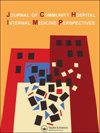胃癌流行病学:全球趋势、危险因素和癌前状况
IF 0.9
Q3 MEDICINE, GENERAL & INTERNAL
Journal of Community Hospital Internal Medicine Perspectives
Pub Date : 2023-11-04
DOI:10.55729/2000-9666.1252
引用次数: 1
摘要
本文综述了近年来胃癌的流行病学、发病机制、危险因素和癌前病变的研究进展。胃癌是世界范围内最常见、最致命的癌症之一。在东亚和东欧等地区,发病率和死亡率仍然很高。虽然在美国的发病率较低,但它仍然是一种致命的疾病。年龄、性别和种族是胃癌发生的不可改变的人口统计学危险因素。有几种饮食和生活方式的风险因素,如盐腌制食品、含n -亚硝基化合物的食物、吸烟、饮酒和肥胖,已被证明有助于胃癌的发展。感染也被证明在胃癌的发病机制中有明确的作用,因为根除幽门螺杆菌可以显著降低胃癌的发病率,以及其他病原体,如爱泼斯坦-巴尔病毒。某些癌前病变会增加患胃癌的风险。包括萎缩性胃炎和肠化生等。本文章由计算机程序翻译,如有差异,请以英文原文为准。
Epidemiology of Gastric Cancer: Global Trends, Risk Factors and Premalignant Conditions
This review article aims to provide a comprehensive overview of recent epidemiology, pathogenesis, risk factors, and premalignant conditions of gastric cancer. Worldwide, gastric cancer is one of the most common and most fatal cancers. The incidence and mortality remain high in regions such as East Asia and Eastern Europe. Although there is a lower incidence in the United States, it remains a deadly disease. Age, gender, and race are non-modifiable demographic risk factors for developing gastric cancer. There have been several dietary and lifestyle risk factors such as salt preserved foods, N-nitroso compounds containing foods, tobacco smoke, alcohol use, and obesity that have been shown to contribute to the development of gastric cancer. Infections have additionally been shown to have a clear role in the pathogenesis of gastric cancer as Helicobacter pylori eradication has shown a significant reduction in the incidence of gastric cancer as well as other pathogens such as Epstein-Barr virus. There are certain premalignant lesions that increase the risk of developing gastric cancer. These include atrophic gastritis, and intestinal metaplasia amongst others.
求助全文
通过发布文献求助,成功后即可免费获取论文全文。
去求助
来源期刊

Journal of Community Hospital Internal Medicine Perspectives
MEDICINE, GENERAL & INTERNAL-
自引率
0.00%
发文量
106
审稿时长
17 weeks
期刊介绍:
JCHIMP provides: up-to-date information in the field of Internal Medicine to community hospital medical professionals a platform for clinical faculty, residents, and medical students to publish research relevant to community hospital programs. Manuscripts that explore aspects of medicine at community hospitals welcome, including but not limited to: the best practices of community academic programs community hospital-based research opinion and insight from community hospital leadership and faculty the scholarly work of residents and medical students affiliated with community hospitals.
 求助内容:
求助内容: 应助结果提醒方式:
应助结果提醒方式:


